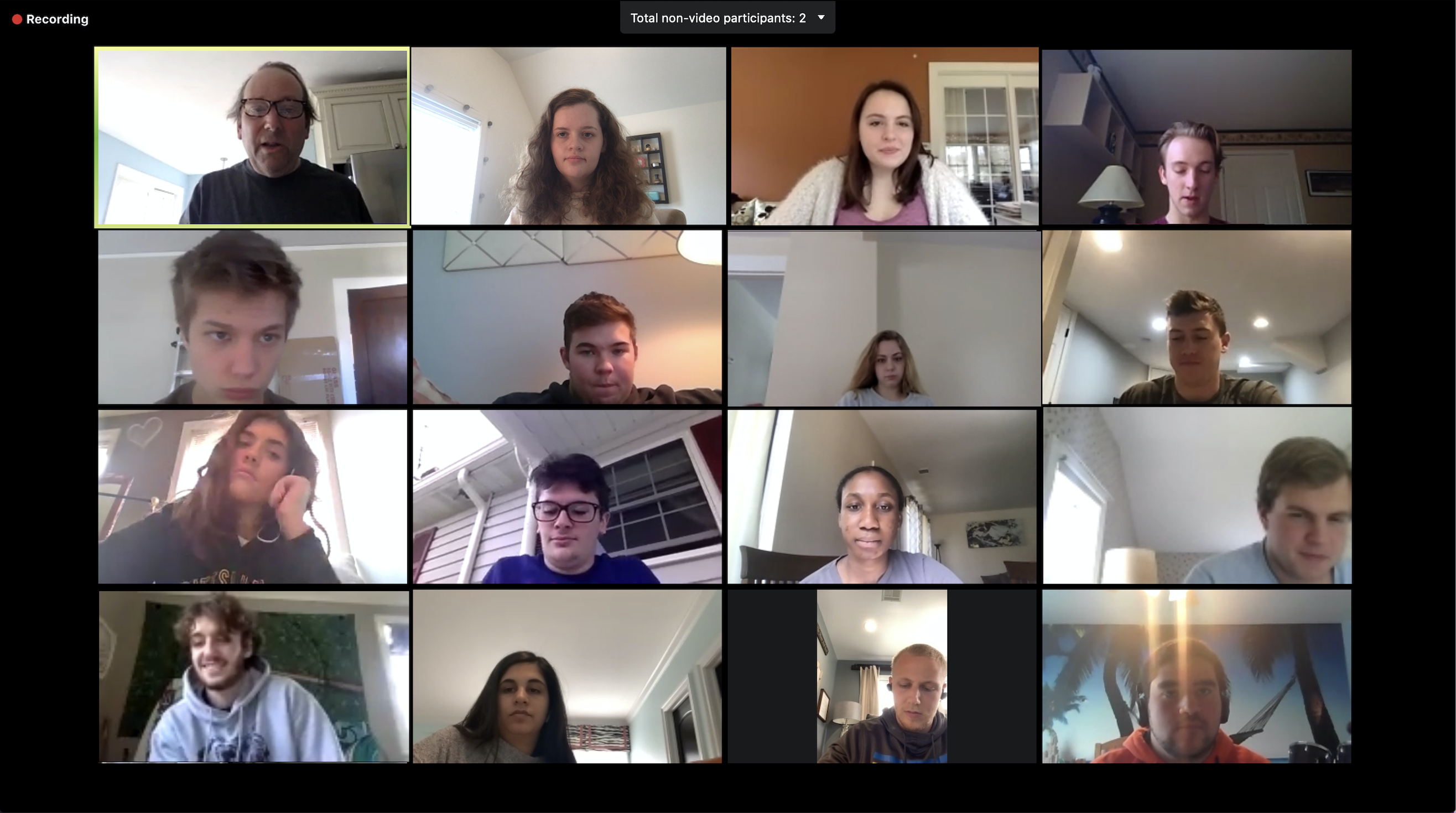Faculty and Students Adjust to Online Learning
By Phoebe Doscher and Nicole DeJacimo
Last week, students and faculty underwent the first full week of remote learning, revealing many of the challenges they must overcome and unique situations that will persist for the remaining five weeks of the semester.
Professors are making accommodations to meet the needs of their students from their new environment. This entails providing alternative assignments, adjusting their syllabi, and offering students academic resources if, for instance, they do not have access to their textbooks.
With regards to accommodating students’ academic needs, Assistant Professor of War and Memory Studies Ian Isherwood wanted to make the changes to his classes the “least disruptive,” as students adjust to a full course load at home or in other new living conditions.
“Other than adjusting the readings on the syllabus, the only major accommodations I have made is to their writing assignments,” Isherwood said, noting that the new assignments “are leaner in scope and in content to accommodate remote learning.”
Students enrolled in courses that entail science labs, music lessons, and collaborative research might require more substantial adjustments to remote learning. Some professors are, however, tweaking their teaching strategies to make some of these hands-on learning opportunities possible.
Associate Professor of Music Jocelyn Swigger teaches piano lessons and, before classes started, voiced that she planned to use Zoom’s screen sharing capabilities to write suggestions on music scores and the camera function to watch their fingers on the keys. She presumed that students who have access to a piano will have a fairly smooth transition, but she also considered assigning a research project on Beethoven to those who do not have access to a piano or proper technology.
“I’ll be able to see them play, hear them play. I won’t, unfortunately, be able to sing along with them or play along with them the way I normally do in a lesson,” she said in an episode of Conversations Beneath the Cupola. “It will be trickier with the students who don’t have the simple set up [of] the camera, [to] do the piano lesson. But, I’m hopeful that we can find things for them to learn.”
In addition to the potential lack of musical instruments and research materials, students may have limited access to WiFi and technology in order to resume online courses. Information Technology acquired 50 smartphones with hotspot capability to provide students with internet access. The college worked to scale up cloud-based teaching as well as the number of trained Information Technology staff members, learning tools, and laptops available to campus “to support students and faculty as they grow into this new environment,” Vice President of IT Rod Tosten said in Conversations Beneath the Cupola.
Tosten reported that IT felt confident in the faculty’s ability to overcome remote challenges by the first day of courses. Faculty were briefed on practices through workshops to improve their skills in Moodle, Zoom, and Screencast-O-Matic; summer hybrid courses—condensed, online courses for five weeks in the summer where faculty and students conduct learning asynchronously and synchronously—helped to establish best practices and a better sense of useful materials for this transition.
While many professors opted for asynchronous classes to provide some flexibility to students who may live in time zones that make mandatory Zoom calls difficult, other classes rely on the connection to maintain the normalcy of the course. Grace Bushway ‘21, a Spanish and Globalization Studies double major, takes two asynchronous courses and two synchronous courses: Spanish and Portuguese.
“Through video calls, we all still converse about the same articles we would have read on campus, make jokes, and ask questions,” Bushway said. “I think that keeping the in-person component has been vital for these courses, and I have enjoyed them a lot so far, despite them being online.”
Professor of History Bill Bowman uses Zoom to resume class meetings and has students submit their assignments to Moodle. Aside from overcoming technological challenges—like lags in the video conference—and lacking face-to-face conversations with his students, online programs have allowed him to resume courses in a productive manner.
“I am missing the face-to-face contact with the students immensely, but I also appreciate that they are rising to the challenge under the extraordinary circumstances created by the ongoing national health emergency,” Bowman said.
Technological accessibility is also a difficulty for Assistant Professor of Interdisciplinary Studies Vernon Cisney, who is particularly concerned about meeting the academic expectations of students while preventing others from experiencing undue stress.
“This is clearly not the liberal arts experience that our students have come to expect, as there is truly no way to replicate the vibrancy and intimacy of a classroom environment in an online setting. But nevertheless, I know we are doing our best to create as engaging and stimulating an experience as we can, given the circumstances,” Cisney said.
In their new environments, students may not be able to buy or download programs that a variety of departments depend on for student research, including STATA and R. Grace Gallagher ‘22 is a Peer Learning Associate for a Political Science Research Methods class that relies on learning STATA, a statistical software package. The program, formerly available for free on the computers at Musselman Library and Glatfelter, is now optional if students cannot afford it at home.
Although most students at Gettysburg College are residential students, there are a handful of commuters, like Emily Hoffman ‘21 who is now at home with her husband and son Bobby. She called her home situation “a juggling act,” but is hopeful that her family can adjust to working, learning, and living together full time.
“It’s going to take organization, self-discipline, and will power to resist the temptation to slack off,” Hoffman said, “but I’m confident in the ability of myself and my classmates to succeed in doing great work from home.”

